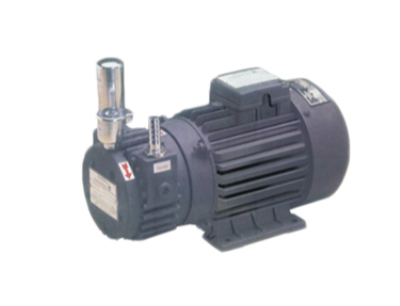-
Call
+ 91 9869569782 / 9594079782
-
Email
Vacuum Pumps
Vacuum Pumps Manufacturer, Supplier

In today's rapidly advancing technological landscape, industries are striving for higher quality standards and increased precision in their manufacturing processes. Visual inspection plays a critical role in ensuring that products meet the desired specifications and adhere to strict quality control measures. UV Inspection Cabinets have emerged as indispensable tools, revolutionizing the way inspections are carried out across various sectors. This comprehensive web content explores the features, benefits, applications, and significance of UV Inspection Cabinets in different industries, shedding light on how they contribute to enhanced precision and quality in visual inspection.
What are Vacuum Pumps?
A vacuum pump is a mechanical device designed to remove gasses or air from a confined space, creating a vacuum or low-pressure environment. By extracting molecules and particles, vacuum pumps allow scientists, engineers, and manufacturers to study and manipulate various substances under conditions that are not achievable in normal atmospheric pressure.
Working Principles
Vacuum pumps operate on different principles, including:
- 1. Positive Displacement: These pumps physically trap and transport gasses from the inlet to the outlet using rotating vanes, pistons, or lobes.
- 2. Momentum Transfer: In this principle, high-speed jets of fluid (often steam or water) impact and push gas molecules out of the system.
- 3. Entrapment: Entrapment pumps capture gas molecules by adsorbing them onto a surface or chemically reacting with them to form a solid.
Types of Vacuum Pumps
- 1. Rotary Vane Vacuum Pumps
One of the most common types, rotary vane vacuum pumps utilize rotating vanes to create a vacuum. As the vanes spin, they trap and compress gas, leading to the creation of a partial vacuum. - 2. Diaphragm Vacuum Pumps
Diaphragm vacuum pumps use a flexible diaphragm that moves up and down to create a vacuum. These pumps are oil-free, low-maintenance, and ideal for sensitive applications. - 3. Liquid Ring Vacuum Pumps
Liquid ring vacuum pumps employ a liquid ring (usually water) to create a seal and compress gas. They are known for their robustness and ability to handle wet or humid gases. - 4. Scroll Vacuum Pumps
Scroll vacuum pumps use two spiral scrolls to compress and push gas towards the center of the pump, creating a vacuum. They are oil-free, have minimal vibration, and find applications in research and semiconductor industries. - 5. Turbomolecular Vacuum Pumps
Turbo molecular pumps operate at high speeds and use a combination of rotating blades and stationary stators to achieve high vacuum levels. They are essential in applications requiring extremely low pressures.
Applications of Vacuum Pumps
- 1. Industrial Manufacturing
Vacuum pumps play a crucial role in various manufacturing processes, including vacuum forming, vacuum drying, and vacuum packaging. They aid in shaping plastics, removing moisture, and sealing products to prolong shelf life. - 2. Chemical and Pharmaceutical Industry
In the chemical and pharmaceutical sectors, vacuum pumps are utilized for solvent recovery, filtration, and distillation processes. They facilitate the creation of pure and high-quality products. - 3. Semiconductor Manufacturing
Semiconductor manufacturing demands the highest level of cleanliness and precision. Vacuum pumps are integral to processes such as ion implantation, physical vapor deposition, and wafer inspection. - 4. Scientific Research and Laboratories
In laboratories, vacuum pumps are used in a myriad of applications, including mass spectrometry, freeze-drying, and electron microscopy. They enable scientists to explore the properties of materials under controlled conditions. - 5. HVAC and Refrigeration
Vacuum pumps are essential for evacuating air and moisture from HVAC systems and refrigeration units, ensuring their efficiency and longevity.
Significance of Vacuum Pumps
- 1. Enabling Advanced Research
Vacuum pumps create unique environments for research in fields like space exploration, materials science, and quantum physics. They allow scientists to study and manipulate matter in ways not possible under normal conditions. - 2. Enhancing Product Quality and Consistency
In various industries, vacuum pumps aid in achieving higher product quality by eliminating contaminants and ensuring consistent manufacturing processes. - 3. Energy Efficiency
Vacuum pumps contribute to energy efficiency by reducing the boiling point of liquids, allowing processes to occur at lower temperatures, and thus saving energy. - 4. Innovation and Technological Advancement
Advancements in vacuum pump technology have spurred innovations in multiple industries, driving progress and development.
